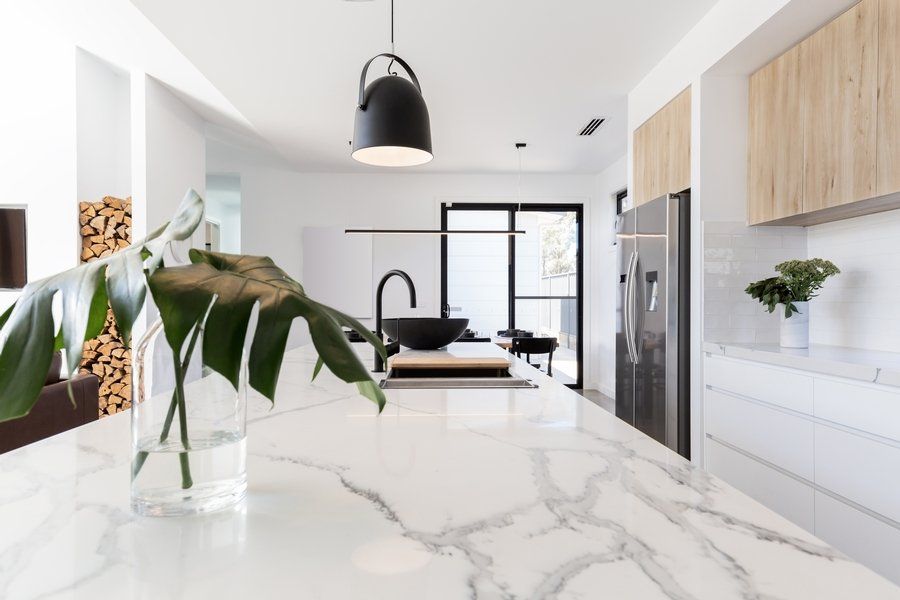A Different Take on Countertops
27 September 2018

Most clients are familiar with common
countertop materials such as marble, granite or quartz. However, those popular
options by no means limit a palate or choices. Other popular countertop
materials include; Laminate (Formica, Wilsonart, Devmar and
others):
Laminate is cost
effective, comes in hundreds of colors and patterns and is easy to clean and
maintain. Wood (Butcher Block):
Wood is a living product that will
change over time. Wood will show wear and tear, nicks and scratches; it is not
heat resistant and needs to be sealed regularly. The attractiveness of wood is
its ability to add character and warmth to a kitchen. Another advantage of wood
is the range of available thicknesses and edges. Wood countertops should be
viewed and used as a piece of fine furniture as opposed to a high-performance
kitchen top solution. Designers often pair wood with other countertop
materials. Stainless Steel:
Professional chefs gravitate to stainless
steel, in part, because it is impervious to bacteria and heat. Stainless steel
requires more maintenance than most other surfaces because of its propensity to
scratch and show water spots and fingerprints. Stainless steel is often
selected to create an industrial look or for those who want the look and feel
of a commercial kitchen. Recycled Glass:
This green material is easy to clean and
maintain, stain resistant, heat resistant, durable and strong. Each glass
countertop is unique, providing a custom look. Recycled glass, despite its
strength, can crack if not properly installed. Also, some designs easily show
fingerprints and water spots. Concrete:
Concrete is extremely durable and is often
custom formed in the kitchen or bath to fit any size, shape, texture or color
desired. Concrete countertops need to be regularly sealed to prevent staining.
Additionally, concrete tops can scratch and chip. Solid Surface (Corian and Swanstone, among
others):
Solid surfaces are
made from acrylic, generally less expensive than stone or quartz and easy to
clean and maintain. They come in rainbows of colors and the material is unique
in that the seams can be invisible. Solid surface countertops can be damaged by
heat and are susceptible to scratching. Tile:
Common countertop tiles are made from ceramic, glass,
granite and porcelain. Tiles come in an endless array of styles, colors, shapes
and textures and can be sized to fit any motif. Tile countertops tend to be
labor intensive for installation and need to be sealed regularly to prevent
damage to the grout. If you are interested in granite, marble, glass, porcelain
or another type of natural stone, a way to reduce material cost is to select
tile instead of slabs, but doing so will increase your installation and
maintenance costs. While there may be cost saving advantages to go with tile
over slabs, there are also huge performance differences. Slabs do not require
grouting or feature grout lines. Plus, stone, quartz, marble and glass slabs
last longer than tile alternatives. Porcelain:
Porcelain countertops are available in an endless array of
colors, patterns and textures; they are easy to clean and heat resistant.
Porcelain is also stronger than granite and lighter. Porcelain slabs are
extremely durable but there is the potential for chipping and cracking. Seeing Is Believing
What countertop would fit perfectly in your
new kitchen? Give us a call at 215-357-9300 or
visit our showroom at 350 Bustleton
Pike, Feasterville, PA 19053
to see and experience firsthand
the right countertops for your home.







